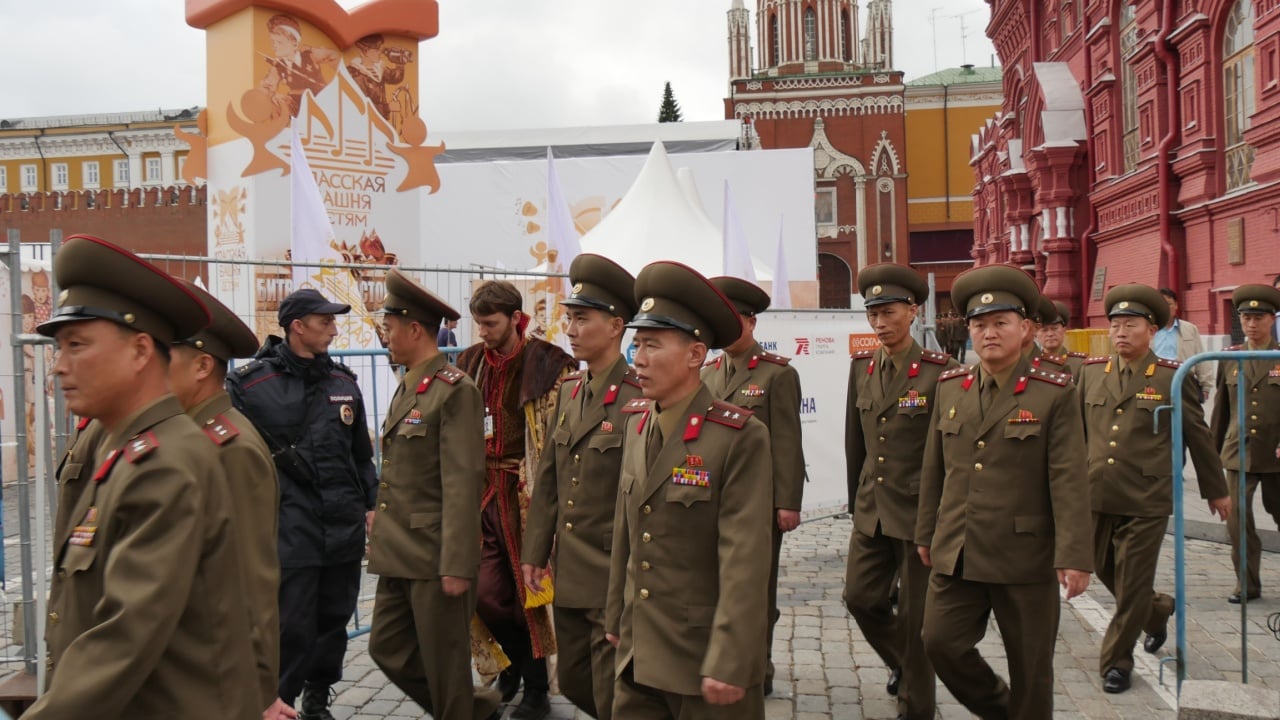
Ukraine’s Dual Adversaries: Russia and North Korea
Ukraine is fighting a war against two nuclear weapons countries: Russia, a signatory of the non-proliferation treaty, and North Korea, which is not.
Since 2014, Moscow has been undermining the logic and letter of the Nuclear Non-Proliferation Treaty (NPT) with its nuclear posturing. In its preamble, the NPT prescribes, “States must refrain in their international relations from the threat or use of force against the territorial integrity or political independence of any State.” In particular, such use or threat of use of force by a nuclear-weapon state against a non-nuclear-weapon state is inadmissible.
Effects of North Korea’s Participation in the Russo-Ukrainian War
The logic of nuclear non-proliferation is now also under attack through North Korea’s entry into the Russo-Ukrainian War. Since 2023, Russia has been increasingly reliant on North Korea throughout its assault of its assault on Ukraine.
The Hermit Kingdom already supported Russia’s war heavily through the supply of military equipment and ammunition and further extended its collaboration with Moscow in the autumn of 2024 by sending troops to fight against Ukraine. Since their deployment, North Korean military units have already engaged in direct combat against Ukrainian forces and taken significant casualties. North Korea’s engagement in this conflict is helping to expand the scope and scale of the war into a global conflagration.
On the Non-Proliferation Treaty
North Korea withdrew from the NPT in 2003, long before its involvement in this European war. Since shedding the need to abide by international agreements on weapons of mass destruction, Pyongyang has felt free to construct and test nuclear weapons and their associated delivery systems without restriction.
Neither Moscow’s initiation of military hostilities with Ukraine in 2014, nor Pyongyang’s full entry into the war ten years later have diminished the NPT’s absolute restriction on Ukraine’s ability to seek the benefits of nuclear deterrence and defense. Its dutiful observance of the NPT is now putting Ukraine at a disadvantage vis-à-vis two nuclear-weapon possessor states: Russia as an official nuclear-weapon state, and North Korea as a de facto nuclear-weapon state outside the NPT.
This situation puts the geopolitical role of the NPT under even more pressure than when Ukraine only had Russia to deal with. Treaty implementation by Ukraine and its non-nuclear allies now looks unfair and burdensome as it puts them at risk vis-à-vis Russia and North Korea. To simplify, Ukraine is being attacked by nuclear-weapon possessor states with two different legal statuses and has no recourse in the context of the NPT to address this unprecedented situation.
North Korea’s new relationship with Russia in connection with the Russo-Ukrainian War also touches on other Russian obligations under the NPT. In June 2024, Vladimir Putin and Kim Jong Un signed a Comprehensive Strategic Partnership Treaty, which entered into force in early December 2024. It includes a promise to defend each other in case of an armed attack that could, presumably, involve Russia or North Korea using nuclear weapons.
In addition, both sides commit to opposing, “the application of unilateral compulsory measures including the measures that assume extraterritorial nature.”
Although still officially a nuclear-weapon state, Russia no longer upholds the sanctions on North Korea that, as one of the five permanent members of the UN Security Council, it introduced in response to North Korea’s development of nuclear weapons outside the NPT.
Instead, Moscow has accepted and legitimized Pyongyang’s right to possess nuclear weapons. Russia’s Foreign Minister, Sergei Lavrov, stated in September 2024 that, “applying the term ‘denuclearization’ to the DPRK (Democratic People’s Republic of Korea) no longer makes any sense. For us, this is off the table.”
Conclusions
Today, the corrosive effects of Russia’s expansion into Ukraine on the global security order are being further aggravated by the increased involvement of North Korea in the Russo-Ukrainian War.
To preserve the non-proliferation regime, all signatory states to the NPT should be unequivocal in their support for Ukraine. They should provide military or non-military help to enable Kyiv to achieve a convincing victory on the battlefield, leading to a liberation of all Ukrainian territories currently illegally occupied by Russia. Upholding the logic of nuclear non-proliferation demands a just peace that does not allow Russia to harvest any fruits from its aggression, upholds respect for international law, including its central principles of national sovereignty and territorial integrity, and compensates Ukraine for its losses.
William Alberque is a Nonresident Fellow at The Henry L. Stimson Center, based in Berlin.
Andreas Umland is an Analyst at the Stockholm Centre for Eastern European Studies (SCEEUS), based in Kyiv.
This article is based on a longer SCEEUS Commentary.
Image Credit: Shutterstock.